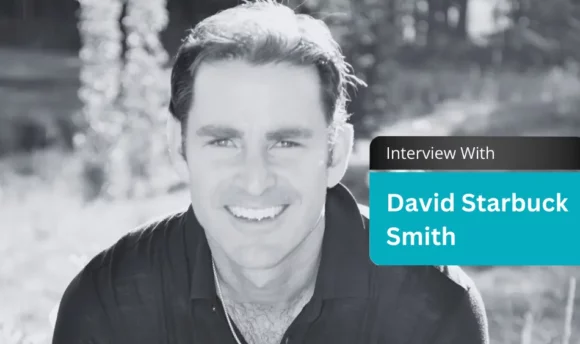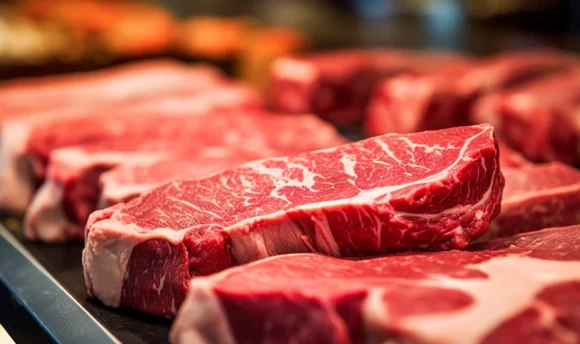Medical Check on 5 Viral TikTok Weight Loss Tricks
Discover expert research on viral fat-burning hacks to fast-track your weight loss journey or avoid a pitfall or two along the way.

If you haven’t been hitting the gym all spring, you’re probably looking for quick weight loss tips online. In fact, #weightloss on TikTok has gone viral with over 84 billion views, while #weightlosstransformation has over 13 billion views.
In this article, we’ve delved back into the TikTok universe and found 5 viral weight loss hacks. All of them range from intriguing to crazy and promise effective results.
Before you dive in headfirst, we’ve taken a responsible approach. To bring you reliable weight loss tips, our medical team vetted each hack, researched scientific studies, and consulted with a registered dietitian.
Will they really help you lose weight, or are they even dangerous? Let’s dive into TikTok’s fat-burning hacks and see if they’re really worth trying.
#1 Pre-Meal Ice Cold Water to Curb Your Appetite
Hack description
Drink 16 ounces of ice-cold water before a meal. In addition to filling your stomach, the liquid forces your body to work harder to warm the ice-cold water to body temperature. The video author claims that your metabolism will burn more calories this way.
Scientific evidence
There is partial evidence for this hack. According to one study, adults who drank 16 ounces of water before each main meal lost more weight over 12 weeks than those who didn’t preload with water. The water-loading group also reported feeling fuller and more satisfied after meals.
Another study found that drinking 16 ounces of water for 60 minutes increased resting energy expenditure (calories burned at rest) by about 24–30%.
The specific recommendation of ice-cold water before a meal has not been studied for weight loss. Ice-cold water may have a small thermogenic effect, requiring the body to burn a few extra calories to warm up. However, the overall effect on weight loss is likely to be minimal.


Ice cold water causes your body to lose energy regulating body temperature, but digesting food also requires energy as a metabolic process. Drinking a lot of water close to food can dilute the stomach acids and make it harder to digest. It will not make you feel full or flush away body fat.
Drinking more than 8 glasses of water will also deplete you of electrolytes. One of these is potassium, which is crucial to your weight loss journey because it works with insulin and other hormones to make you lose body fat.
#2 Sip Sugar-Free Syrup to Satisfy Sweet Cravings
Hack description
Next time you get a craving that will throw you off your diet, drink sugar-free syrup. As the author suggests, it has fewer calories and will kill that craving quickly.
Scientific evidence
Sugar-free syrups are indeed a low-calorie alternative to traditional syrups. However, they contain artificial sweeteners such as aspartame, saccharin, or sucralose.
The health effects of artificial sweeteners include negative effects on metabolism, heart disease, and increased risk of certain cancers.1
Artificial sweeteners can also deceive you. According to research, they make us think that sweetness has nothing to do with calories. As a result, we may crave sweets, eat sugary foods instead of nutritious foods, and gain weight.2
In another study of 5,100 participants, people who consumed more than 21 diet drinks per week were twice as likely to gain weight than non-drinkers.3


Sugar-free syrup may temporarily reduce sugar cravings for some people, but it’s not a long-term or sustainable solution for weight loss, especially if it becomes an addiction. The sugar-free syrup doesn’t provide nutrients to the body.
Most sugar-free syrups contain artificial sweeteners or sugar alcohols, which may satisfy your taste buds but do not provide lasting satiety. Large amounts of artificial sweeteners can also cause gastrointestinal upset.
#3 Downsize Your Portion With a Bigger Bowl
Hack description
If you are an overeater, put your food into a giant bowl. The video’s author says that when she puts her regularly portioned food into a big dish, it makes her eat less.
Scientific evidence
There is no research to support this hack. It may alter some people’s perception of portion size, but this effect depends on a particular person.
The environment in which we eat can influence our eating habits. Studies show that plate size and color affect portion size estimation and food consumption.4 So, using a larger bowl might influence how much food you perceive you are consuming.


Eating larger bowls might create the illusion of consuming more food, but it is not medically or nutritionally beneficial. Having a bigger portion size can trick the brain into feeling satisfied, but ultimately, the quality of the food determines its nutritional value.
She says her portion is smaller than she used to have, but it still seems high in fat. Instead of junk foods, eat whole grains, lean proteins, fruits, and vegetables.
When you serve a specific portion of food on a plate, you’re more likely to eat only that amount. You might gain weight if you overeat or eat unhealthy food just because it fills a bigger bowl. The dish size has more to do with psychological satisfaction than nutrition.
#4 Tame Cortisol, Trim Waistline
Hack description
The author of the video was diagnosed with PCOS and hypothyroidism. Later, she tweaked her diet, lifestyle, and workouts to help her lower the cortisol, exacerbating PCOS and hypothyroidism symptoms. It made her lose weight and get the body she wanted.
Scientific evidence
High cortisol levels can really lead to weight gain or difficulty losing weight.5 Yet, cortisol is only one factor that affects body weight, like diet, physical activity, genetics, and lifestyle.
Studies prove that stress relief techniques such as exercise, meditation, or a healthy diet reduce cortisol levels in certain contexts.6, 7
The effects can vary from individual to individual, so check with a doctor or dietitian first. In addition to lifestyle changes, PCOS and hypothyroidism often require comprehensive management, including medical interventions.


Cortisol is necessary for various bodily functions. Yet, elevated or prolonged cortisol levels can be problematic if you’re trying to lose weight because they:
- Increase appetite
- Promote fat storage
- Negatively affect metabolism
- Contribute to insulin resistance
High cortisol is related to chronic stress, so high-impact exercise can worsen levels of this hormone in response to movement. Physical activity with a low to moderate impact reduces cortisol levels and promotes weight loss.
#5 Volume Eating: More Food, Fewer Calories
Hack description
To lose weight, you can eat more food while staying in a calorie deficit. The author claims that eating larger quantities of low-calorie foods can satisfy your hunger without consuming excessive calories and save you from a grumbling stomach. She makes a bowl with yogurt, blueberries, low-calorie pudding, and popcorn.
Scientific evidence
One study found that consuming high-volume, low-calorie recipes helps reduce hunger and satisfy you.8
However, other researchers indicate that food consumption reduces hunger and increases satiety feelings independently of food volume.9 During the whole study, the food volume had no significant impact on satiety. Only right after ingestion, bigger meals were significantly more satiating than smaller ones.
Volume eating may be helpful for patients who work to understand how much food they need to be comfortably full. Also, it can be more psychologically sustainable than typical dieting because it does not involve counting calories or macronutrients.
Remember that there are healthier alternatives to the products mentioned in the video. Instead of jelly and popcorn, try high-volume, low-calorie vegetables, and greens, such as cucumbers, spinach, or broccoli.


Those that restrict calories and replace meals with different food products may lose significant weight but often gain most of it back soon after.
Eating large amounts of low-calorie meals is nutritionally correct and is often recommended for weight loss. Low-calorie foods, but those rich in fiber and water content (like fruits, vegetables, and whole grains), help you feel fuller for longer. As a result, you won’t overeat high-calorie foods, and you’ll lose weight.
However, you can get volume and a few calories from sugar-free jelly. Popcorn’s fiber also boosts satiety.
Eating larger portions of low-calorie foods can help weight loss. But you should eat from all food groups to keep your diet balanced.
In Closing
To manage overeating and lose weight, Edible Quintero suggests experimenting with different diet strategies.
Try mindful eating instead of eating from a big bowl or high volumes of food. It involves being fully present and aware of your hunger and fullness cues, as well as your food’s taste, texture, and smell. This way, you will also have better control over your portion sizes.
Another good trick is leaving your fork on the table between bites to slow down eating. This helps the food to be chewed longer, helping the enzymes in the saliva to come into contact with the food, promoting digestion before it enters the stomach.
By trial and error, you can find the techniques which work personally for you, regardless of whether it is research-based. To make your weight loss journey healthier, rely on a combination of inner feelings, medical guidance, and scientific evidence.
Sources
- Sugar substitutes: Health controversy over perceived benefits
https://www.ncbi.nlm.nih.gov/pmc/articles/PMC3198517/ - Artificial sweeteners: sugar-free, but at what cost? — Harvard Health Publishing
https://www.health.harvard.edu/blog/artificial-sweeteners-sugar-free-but-at-what-cost-201207165030 - Fueling the obesity epidemic? Artificially sweetened beverage use and long-term weight gain:
https://pubmed.ncbi.nlm.nih.gov/18535548/ - How does plate size affect estimated satiation and intake for individuals in normal‐weight and overweight groups?
https://www.ncbi.nlm.nih.gov/pmc/articles/PMC5598018/ - Stress, cortisol, and obesity: a role for cortisol responsiveness in identifying individuals prone to obesity
https://pubmed.ncbi.nlm.nih.gov/27345309/ - Effect of Mindfulness Meditation and Aerobic Exercise on Serum Cortisol Levels in Type 2 Diabetic Patients:
https://mjcu.journals.ekb.eg/article_225178_e36c4ba77419559857afa86207ef1077.pdf - Increasing Dietary Carbohydrate as Part of a Healthy Whole Food Diet Intervention Dampens Eight Week Changes in Salivary Cortisol and Cortisol Responsiveness:
https://www.ncbi.nlm.nih.gov/pmc/articles/PMC6893582/ - Effect of Meal Volume on Hunger and Satiety in Obese Subjects:
https://www.ncbi.nlm.nih.gov/pmc/articles/PMC5891779/

















































 Select your language:
Select your language: 







